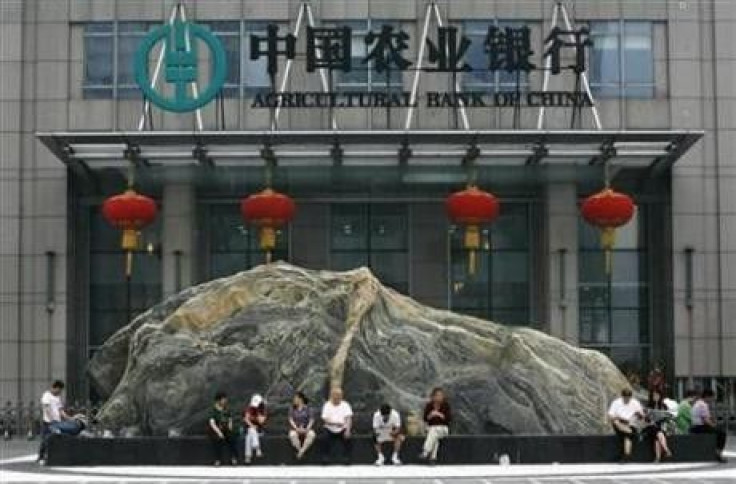Fraser Howie on what's wrong with China's banks and financial system

Non-performing loans (NPLs) -- a fancy word for banks lending out money but not getting it back because the borrower can't repay it -- are the bane of banks.
Banks in China are certainly victims of this problem, said Fraser Howie, a financial professional with decades of experience in China and the author of Red Capitalism: The Fragile Financial Foundation of China's Extraordinary Rise.
To understand China's banking problem, it helps to look back in history.
Before the reforms of the 1990s, Chinese banks were not really banks -- if one evaluated them by normal banking standards, they would be be insolvent.
Instead, they were more like instruments/channels to carry out government economic policies, so their criteria for lending was dominated by political incentives rather than economic ones.
While Western banks already have enough trouble avoiding NPLs when their primary motive for making loans is the probability of repayment, it's easy to see why Chinese banks would have more NPLs when they don't even make loans based on economics in the first place.
These banks obviously ran into problems and disrupted the economy.
Howie cited the bankruptcy of Guangdong International Trust and Investment Corp. (GITIC) and the Hainan asset bubble collapse as examples.
The Chinese government, in the late 1990s, finally started to address these problems.
First, they recapitalized banks and moved NPLs to 'asset management companies,' which were similar to the West's 'bad banks,' said Howie.
Then, they tried to fundamentally reform the banks to be more modernized, impose better risk management structures, and incentivize management to make loans based on economics rather than politics.
Lastly, they listed these banks on publicly-traded exchanges to give them even more capital and hopefully allow the market to force some discipline on them.
These reforms fixed some issues. However, they were lacking in other aspects and far from perfect, said Howie.
A major problem is that the asset management companies never went away, i.e. the NPL problems from a decade ago are still unresolved.
Asset management companies burden the balance sheet of the Chinese government.
Moreover, the large banks listed on the public exchanges, who previously dumped their NPLs to asset management companies, still make loans to these institutions. Predictably, some of these loans made to the 'bad banks' don't have a high probability of being repaid.
So in a way, the asset management companies -- designed to rid banks of NPLs -- are actually causing them to make new NPLs.
One particularly damning evidence against Chinese banks is that many of them are coming back to the capital markets to raise more money just a few years after they initially raised billions of dollars from the public.
These banks have been operating in an allegedly booming market and have been making record profits, so their fundraising needs raises questions, said Howie.
He also criticized China's capital markets.
First, the government controls too much of it by fixing rates and prices. Second, the capital markets are too incestuous, meaning big banks hold large portions of the securities of other big banks and state-owned enterprise (SOEs).
As a result, little market disciplined is enforced.
In Western market-driven economies, the markets punish (and prevent) money-losing practices. In China's more cozy environment, that doesn't really happen because the market is dominated by the government and a bunch of SOEs that won't punish each other.
Howie said the global financial crisis also set back and destroyed much of China's previous banking reform efforts.
To prop up the economy post-crisis, the Chinese government rolled out a 4 trillion yuan stimulus package and disseminated it to the broad economy through banks.
As a result, banks were lending again based on policy rather than economics and years of progress of moving away from that very practice was destroyed. Once again, banks have become the policy tool of the government.
What does all of this mean?
Howie doesn't believe China will collapse.
It's not on a treadmill to hell, he said, referencing hedge fund manager Jim Chanos' assertion that China is indeed on a treadmill to hell and may soon collapse.
China's real economic progress in the last thirty years will not simply go away, said Howie.
However, he thinks the country's distorted financial system will be a negative for economic growth and waste resources by misallocating capital.
To read more Global Markets interviews, click here
Email Hao Li at hao.li@ibtimes.com
© Copyright IBTimes 2024. All rights reserved.











